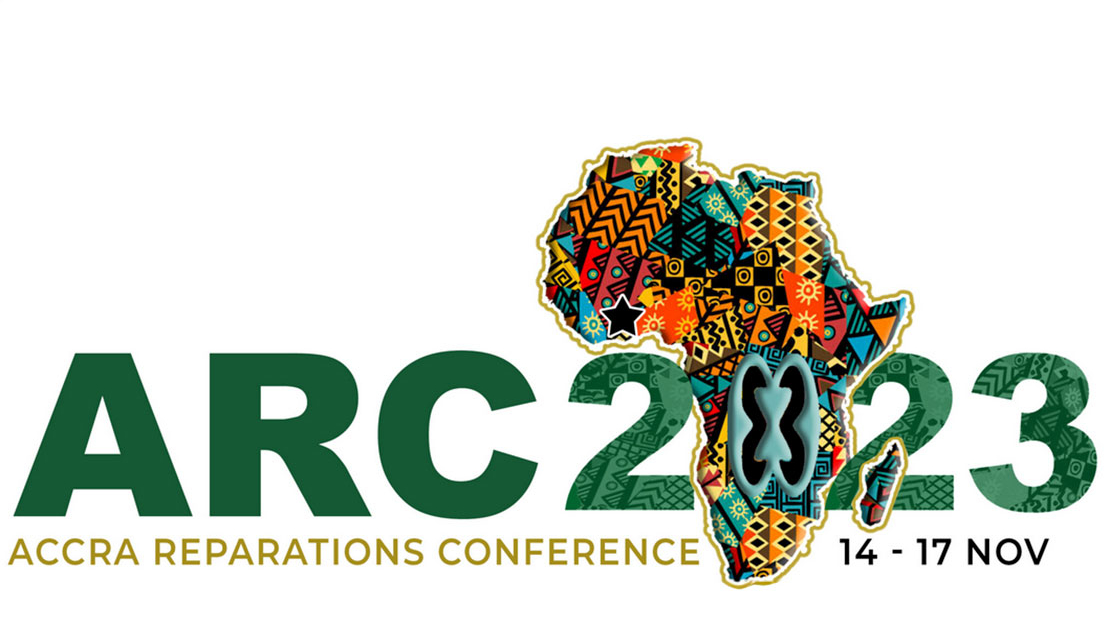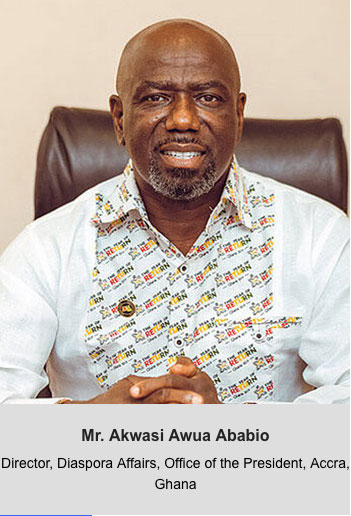The Accra Conference on Reparations gets underway on Tuesday Nov. 14
The following article is republished from WiredJA and was written on November 10, 2023.
ACCRA, Ghana, November 10, 2023 – The establishment of an African Reparatory action plan, outlining key strategies, timelines and stakeholders for a sustainable reparatory justice process, is expected to be one of the main outcomes of The Accra Reparations Conference, which gets underway on Tuesday at the Kempinski Hotel along the Cape Coast road in Accra Ghana.
The conference is being co-organized by the Republic of Ghana and the African Union Commission.
It seeks to promote dialogue, knowledge sharing and actionable strategies among diverse and relevant stakeholders on the way forward regarding addressing historical injustices against Africans and peoples of African descent, through the slave trade, segregation (Jim Crow), colonialism, apartheid, neo-colonialism and neo-liberalism.
Earlier this year, the CARICOM Reparations committee unveiled a report entitled “The Report on Reparation for Transatlantic Chattel Slavery in the Americas and the Caribbean” (TCS), which quantifies the reparations due to the descendants of enslaved persons who suffered death and untold hardships as a result of chattel slavery across the Americas and the Caribbean.
Countries which profited from participation in the grotesque and unlawful practice of Transatlantic Chattel Slavery, TCS, have been assessed to owe some US$108 Trillion in Reparation for their part in the Transatlantic slave trade and the resulting Chattel Slavery in the Americas and the Caribbean.
In its assessment for reparations, the Brattle Group which quantified the sum each country is to be paid, identified a number of headings under which payment would be required.
These include: Loss of Life; Uncompensated labour; Loss of liberty; Personal injury; Mental pain and anguish and Gender based violence.
According to the report, Britain which devised, presided over and profited from the enslavement of people in 14 countries that it had colonised under the system of Transatlantic Chattel Slavery, TCS, will be required to pay US $108 trillion in reparations. Of that sum, US $9.5 trillion is to be paid to Jamaica.
Spain has a reparatory debt of US$17-trillion, of which Jamaica is entitled to be paid of which it is to pay Jamaica US102 billion dollars.
France’s debt has been calculated at US$9-trillion, while Portugal’s sum stands at US$20-trillion, of which US $4 trillion is owed to Brazil.
The Netherlands is required to pay reparations amounting to US $5 trillion, of which US$3- trillion is to be paid to Suriname, while US $52-billion is to be paid to Guyana.
The historic valuation undertaken by the Brattle Group, an internationally recognised group of valuators, indicates that the United States has been assessed to owe former enslaved workers US $26 trillion for its participation in Transatlantic Chattel Slavery between 1776 and 1865.
Haiti came up for special mention in the report. Because following the Haitian Revolution, Haiti became a republic in 1804. A monumental achievement in the history of enslaved Africans in the Caribbean.
The report was sponsored by the American Society of International Law in collaboration with the University of the West Indies, through the Centre for Reparation Research and the PJ Patterson Institute for Africa-Caribbean Public Advocacy
In various parts of the world, people of African ancestry are pushing the cause for reparations. In the United States, political leaders, religious personalities, grassroots organizations, opinion leaders have been unceasingly and increasingly calling for reparation, generations after generations.
The icon of the golden age of the Civil Rights Movement, Dr. Martin Luther King made several calls for reparation for Black Americans. In recent years, cities and municipalities in the US have been passing progressively bills in favour of reparations.
The topic of reparations gained ground in the United States, having been one of the 2020 Presidential election campaign subjects. The HR 40 Congressional Bill, which aimed at studying the inequities of slavery and segregation and at proposing remedies to rectify the wrongs caused by these systems, is yet to be passed into law.
In the Caribbean, the Caribbean Community (CARICOM) has been undoubtedly the champion for restorative justice of the Caribbean-descent African people. The Accra Reparations Conference, building on previous and present efforts in favour of reparation intends to build an all-African peoples unified front for the advancement of the cause of reparatory justice.
That front endorsed by the African Union, with the strategic support of CARICOM and various stakeholders in the United States of America and in Europe will constitute the first ever African Committee of Experts on reparations.
The Committee, drawn from relevant fields including law, will be established for the purpose of developing a Common African Position on Reparations and incorporate therein, an African Reparatory Programme of Action.
Moreover, the Committee, among other things, will collaborate with CARICOM to establish an African Caribbean Joint Mechanism on Reparatory Justice based on the resolve of the Global African Diaspora Summit held in South Africa in 2012.
To assist the Committee in the discharge of its mandate, a global reparations fund will also be created. The call for reparations is a call for justice to right the wrongs of the past and of the present and to transform the vicious cycle of impoverishment of Africa and its people into a virtuous cycle for shared prosperity.


